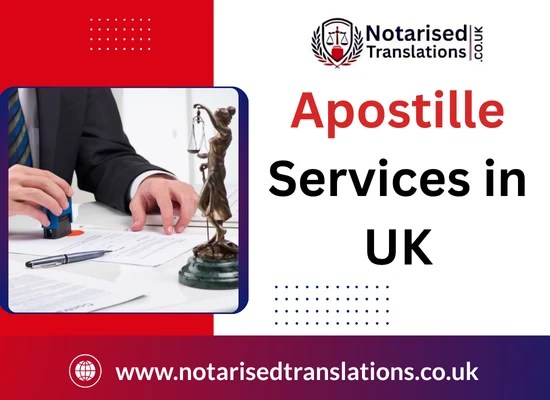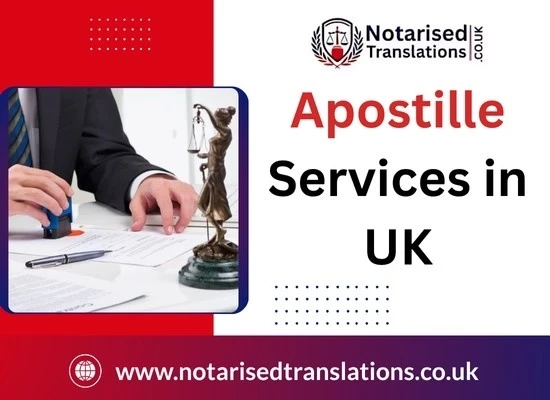As globalization expands and more people relocate, marry, study, or conduct business across borders, the need for legal document authentication rises. If you're getting UK-issued documents ready for use abroad, you’ve likely come across the terms apostille, translation, and legalisation—but how do they fit together?
In this guide, we’ll clarify what apostille translation services in the UK involve, who needs them, and how to ensure your documents are accepted internationally without delays.
What Is an Apostille?
An apostille is an official certificate issued by the UK Foreign, Commonwealth & Development Office (FCDO). It verifies the authenticity of a public document for recognition in another country, specifically in those that are part of the Hague Apostille Convention 1961.
Common UK documents that may need an apostille include:
- Birth, death, or marriage certificates
- Academic diplomas or transcripts
- Criminal background checks (ACRO or DBS)
- Powers of attorney
- Notarised translations
- Corporate records and legal contracts

Why Apostille Translation Services Matter
Many foreign authorities do not accept documents in English. This means that even if you have a valid apostille on a UK document, it may be rejected if it is not accompanied by a certified translation.
Apostille translation services in the UK are essential because they combine certified translation with apostille processing, ensuring both accuracy and legal acceptance.
What Is a Certified Translation?
A certified translation is done by a qualified professional or agency that certifies that:
- The translation is true and accurate to the original
- The translator is skilled in both the source and target languages
In the UK, certified translations are often necessary for:
- Immigration or visa applications
- University admissions
- Employment abroad
- Marriage or divorce proceedings overseas
For legalisation, a certified translation often must be:
- Signed by the translator
- Notarised by a UK notary
- Then apostilled by the FCDO
Step-by-Step: How Apostille Translation Services Work
Here’s how the process generally works:
Step 1: Document Review
Submit your original English document for evaluation. The agency will determine whether it needs to be translated, notarised, or both.
Step 2: Certified Translation
A qualified translator will translate your document into the required language (e.g., Spanish, Italian, French). A signed accuracy certificate will be attached.
Step 3: Notarisation
The translated document and accuracy certificate will be examined and notarised by a UK Notary Public, making it legally recognised in the UK.
Step 4: Apostille
The UK FCDO will add an apostille to the notarised translation, confirming its authenticity for international use.
Countries That Typically Require Apostilled Translations
Most countries that are part of the Hague Convention accept apostilled translations. Some examples include:
- Spain
- France
- Italy
- Portugal
- Germany
- Poland
- Mexico
- South Korea
However, non-Hague countries (like China, UAE, or Qatar) may require embassy legalisation in addition to— or instead of—an apostille.
Common Mistakes to Avoid
- Translating before checking requirements
Some countries want the apostille on the original document, not the translation.
- Using unqualified translators
Only certified translators should be used to prevent rejection.
- Skipping notarisation
Many foreign authorities require a notarised translation before apostilling.
- Assuming English is acceptable
Even in English-speaking countries, translated documents may still be needed for legal purposes.
Why Use Professional Apostille Translation Services in the UK?
Instead of navigating each step alone, you can partner with a reliable agency that provides:
- Translation by certified linguists
- Notarisation by registered UK notaries
- Apostille processing with the FCDO
- Urgent/express services for time-sensitive needs
This comprehensive approach helps prevent:
- Rejected documents
- Missed deadlines
- Unnecessary postage delays
- Extra fees for reprocessing
When selecting a provider, ensure they offer:
- Certified translations accepted by embassies and consulates
- Official notary services
- Fast-track apostille services (1–3 days if needed)
- Experience with your destination country’s requirements
- Transparent pricing and delivery estimates
Final Thoughts
Preparing documents for international use doesn’t have to be stressful. Whether you're applying for dual citizenship, getting married abroad, or signing international contracts, apostille translation services in the UK make sure your paperwork is accurate, accepted, and delivered on time.
With certified translation, notarisation, and apostille all managed by professionals, you can be confident that your documents will be recognised wherever you go.


